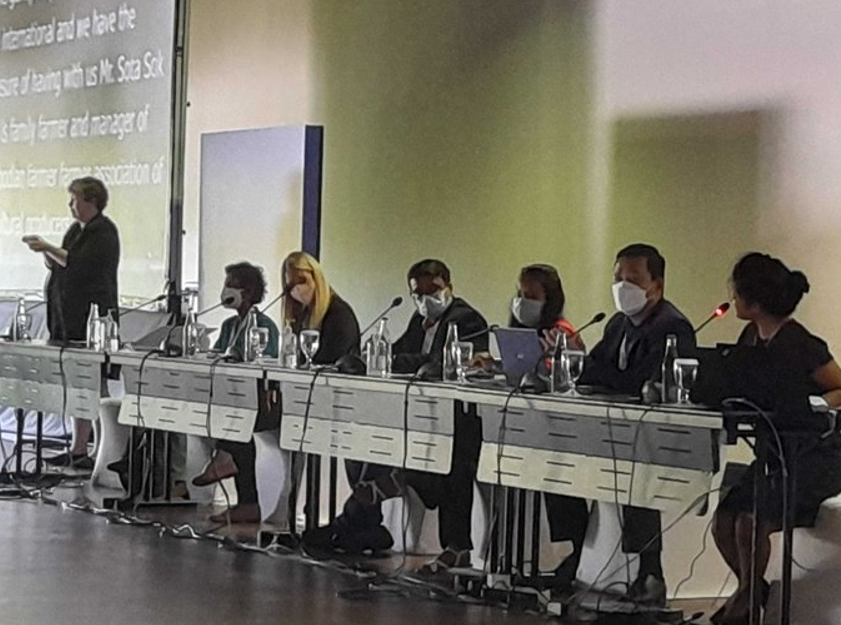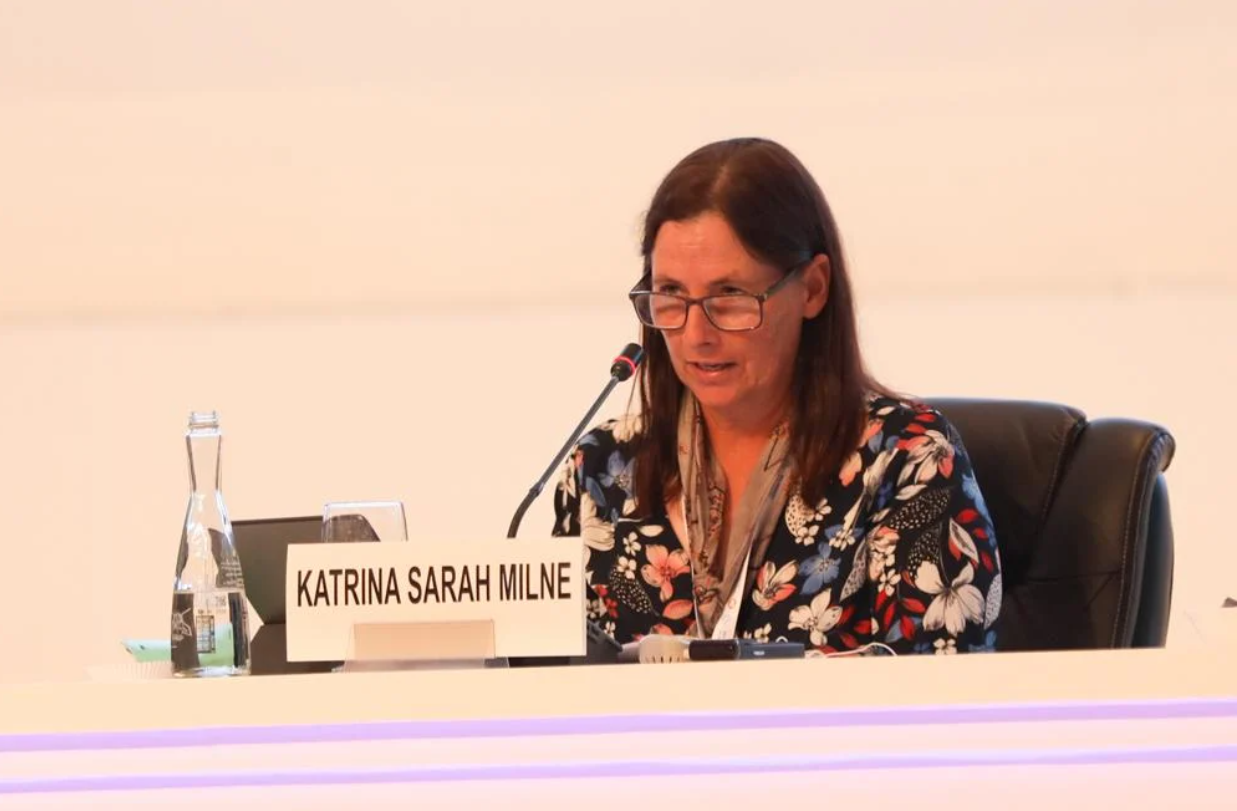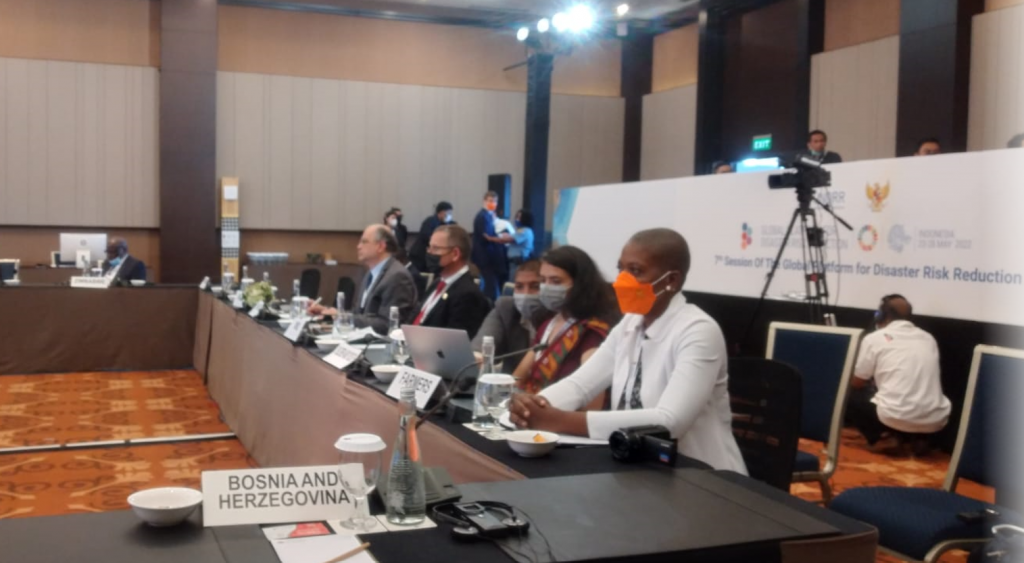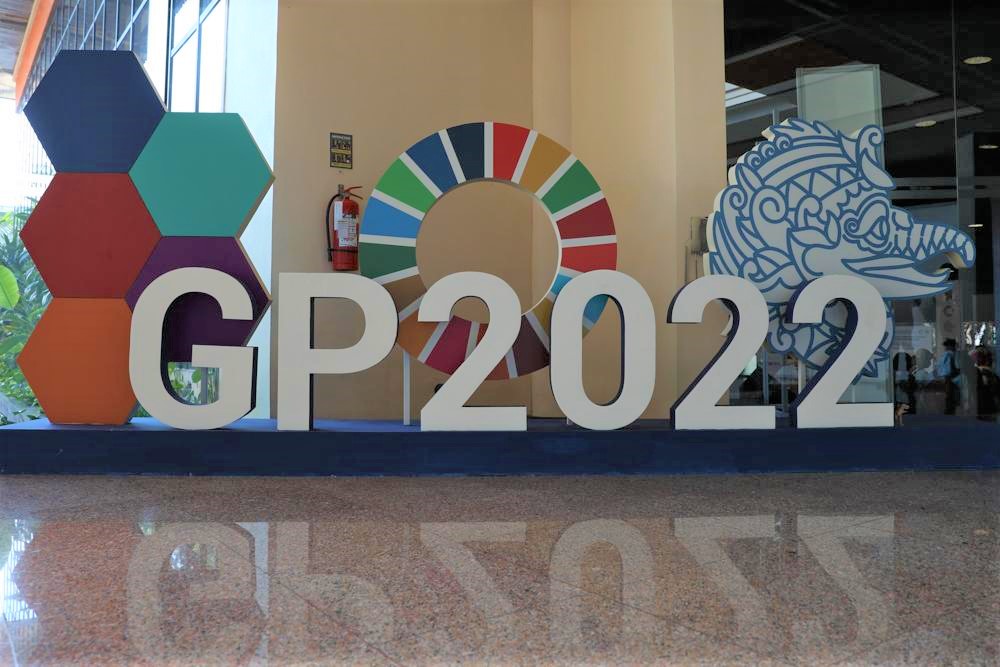From May 23 to 28, 2022, a delegation of the World Farmers’ Organisation (WFO) was in Bali, Indonesia, to address the seventh session of the Global Platform for Disaster Risk Reduction (GP2022) .
The Platform is the main multi-stakeholder global forum to assess and discuss progress, share knowledge, and identify gaps in the implementation of the Sendai Framework for Disaster Risk Reduction 2015-2030 (Sendai Framework).
Organised by the UN Office for Disaster Risk Reduction (UNDRR) and hosted by the Government of Indonesia, the conference consisted of plenary sessions, ministerial roundtables, high-level dialogues, and working sessions on various disaster-related topics under the overall theme of the 2022 Global Platform, “From Risk to Resilience: Towards Sustainable Development for All in a COVID-19 Transformed World”.
GP2022 offered governments, the UN system, and all stakeholders the chance to renew commitments, increase ambition, and accelerate progress on disaster risk reduction (DRR) towards a successful Agenda 2030.
The 2022 Global Platform highlighted the importance of international solidarity and cooperation in addressing risk drivers at the local, regional, and global levels. Additionally, it explored how to strengthen disaster risk governance and build stronger systems for managing all types of risks.
As representative of the farmers’ constituency within the Stakeholder Engagement Mechanism (SEM) for the implementation of the Sendai Framework, the World Farmers’ Organisation didn’t miss the opportunity to ensure farmers’ voice was heard loud and clear, thanks to our esteemed members’ representatives, who joined the event engaging in several meetings: Ms Tamisha Lee, President of our member organisation from Jamaica, Jamaica Network of Rural Women Producers (JNRWP); Mr Sok Sotha, WFO Asian Constituency Representative and Vice-President of Cambodian Farmers Association – Federation of Agricultural Producers (CFAP) and Ms Katrina Sarah Milne, WFO Board Member from the Oceanian Constituency and former president of Federated Farmers, New Zealand.
23 May – Stakeholder Forum: Plans and Opportunities for the future of SEM

Mr Sok Sotha joined the Stakeholder Engagement Mechanism Forum in the framework of the upcoming UNDRR Global Platform on behalf of WFO to reiterate our gratitude to UNDRR for creating the Sendai Stakeholder Engagement Mechanism that helps strengthen the voice of all the most vulnerable communities to disasters and climate change, to find solutions together.
He remarked on WFO‘s willingness to contribute to mainstreaming the SEM messages in the meetings, suggesting that it is necessary to strengthen the link between DRR and Climate change, primarily through the lens of climate change adaptation.
“WFO will continue to contribute to the activities of the SEM Advisory Group as a member representing the farmers’ constituency by bringing the farmers’ voice and mainstreaming the concept of resilience”, – said Mr Sotha – “but also by sharing direct and concrete best practices from farmers on how farmers are coping with disasters on the field“.
25 May – High-Level Dialogue – Where do we stand? Global and regional perspectives on implementing the Sendai Framework

Ms Katrina Sarah Milne addressed a High-Level Dialogue focused on the current situation of implementing the Sendai Framework: successes, constraints, and barriers.
Starting from the Asia-Pacific region-specific perspectives, Katie Milne underlined the positive results achieved across several areas of the Sendai implementation, for example, in terms of capacities to manage disasters through strengthened prevention, preparedness and response efforts as well as in terms of reduction of the number of people dying from disasters.
Still, gaps remained high, especially after COVID19 and with climate change-related disasters that are particularly strong in the region, which also prevents the progress in achieving the SDGs and the Paris Agreement objectives.
Moving to a global perspective, she tried to answer the thorny question: how do we get on track and accelerate action?
There is no one-size-fits-all solution. Furthermore, Ms Milne reminded the audience that “Farming is an economic sector, the backbone of many societies regardless of the Countries and farmers’ sizes. Investing to increase farmers’ resilience to shocks and engage farmers in the DRR process, applying a farmer-driven approach, is key to achieving the Sendai Framework and contributing to sustainable development in general”.
CLICK HERE TO WATCH THE EVENT RECORDING
25 May – Ministerial Roundtable: Scaling-up Disaster Risk Reduction to Tackle the Climate Emergency

Ms Tamisha Lee represented WFO in the Ministerial Roundtable about Scaling-up Disaster Risk Reduction to Tackle the Climate Emergency.
She brought the experience of Jamaican Rural Women Farmers and the whole farming community, highlighting the huge role that agriculture plays in the fight against climate change. “Conservation, restoration, and sustainable management of ecosystems are convenient, safe and available means of sequestering carbon, preventing GHG emissions, protecting ecosystems, reducing communities’ exposure to disasters”, – she said – “Innovating risk management approaches and understanding the opportunities and challenges of the farmers, including family farmers, women and youth, is critical for the development of any successful financial strategy and policy directed to the agricultural sector.”
She underlined the importance of right and responsible investments and their crucial role in enhancing the already huge potential of the farming sector to be part of the solution to climate change, including through risk-sensitive agricultural practices, carbon sink for mitigation, and sustainable soil management, preservation of ecosystems and biodiversity.
